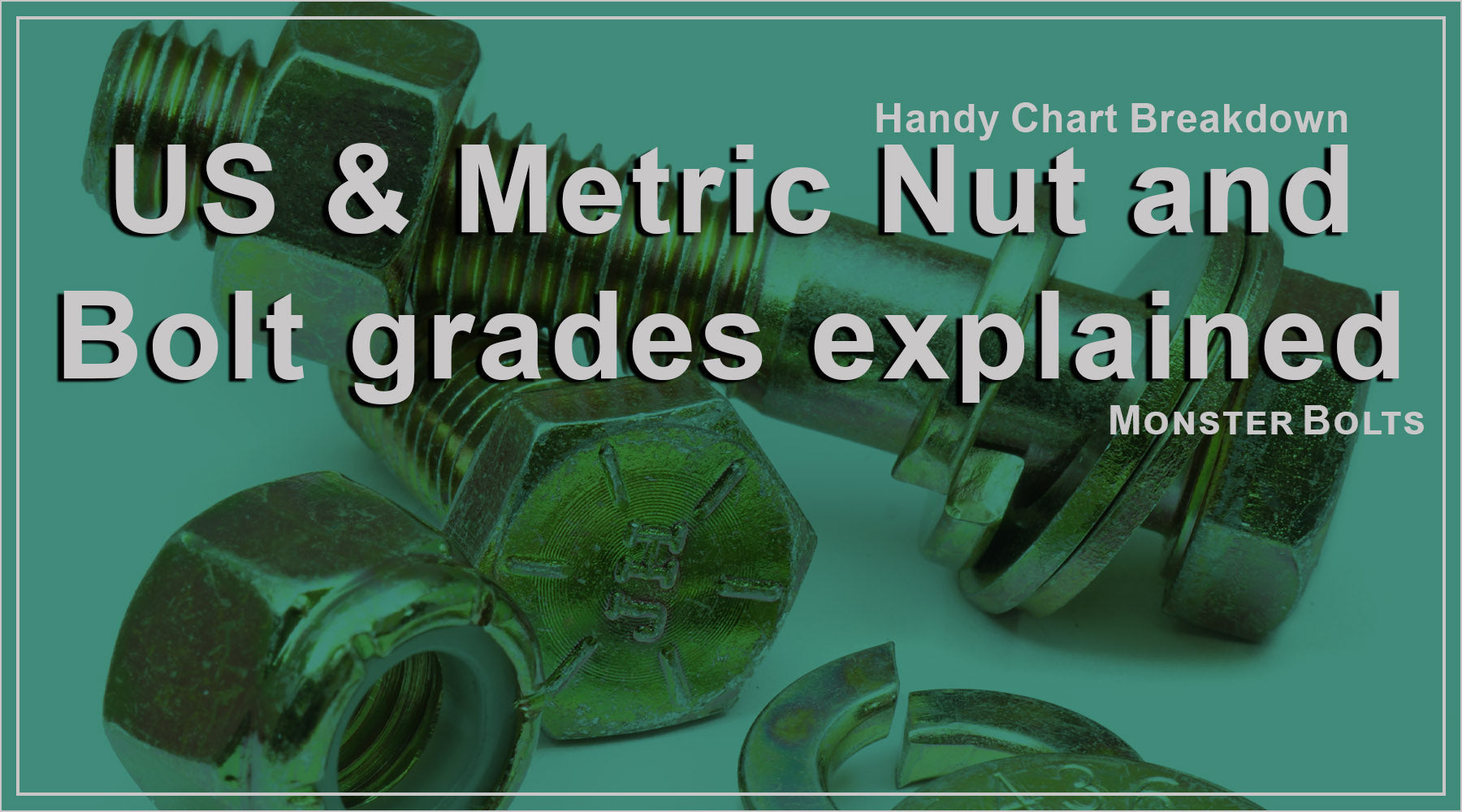When selecting bolts and nuts for any project, understanding grades is crucial. Bolt and nut grades are defined by both the material and the strength, which helps determine how much stress they can handle. Each grade has specific applications, and knowing the differences can help you choose the right fastener for your project.
What is a Bolt and Nut Grade?
Bolt and nut grades are established by various standards organizations and are used to indicate the material and strength of a fastener. Strength requirements are typically based on the material's hardness—stronger fasteners are made from harder materials. Grading systems often include proof load or tensile strength requirements, which verify that the material can withstand the listed forces.
3 Major Standards for Bolt and Nut Grades
There are several organizations that define bolt and nut grading standards, but three of the most widely recognized are SAE, ISO, and ASTM. These organizations create standards for different types of fasteners, including material requirements, strength ratings, and head markings. Below is an overview of how each standard works:
SAE (Society of Automotive Engineers)
SAE is one of the most commonly referenced standards for inch-sized bolts and nuts in North America. SAE J429 defines grades for bolts based on their strength, which is indicated by radial lines on the bolt head.
- SAE J429 Grade 2: Low-strength carbon steel (60,000–74,000 psi). Ideal for non-critical applications.
- SAE J429 Grade 5: Medium-strength carbon/alloy steel (105,000–120,000 psi). Common in automotive and machinery.
- SAE J429 Grade 8: High-strength carbon/alloy steel (up to 150,000 psi). Used in heavy machinery and aerospace.
ISO (International Standards Organization)
ISO 898-1 defines property classes for metric fasteners. Head markings are stamped numbers indicating strength.
- Class 8.8: Medium strength, similar to Grade 5.
- Class 10.9: High strength, similar to Grade 8.
- Class 12.9: The strongest metric fasteners, used in critical applications.
ASTM (American Society for Testing and Materials)
ASTM sets standards primarily for construction and industrial applications.
- ASTM A307 Grade A: Low-strength carbon steel (60,000 psi) for non-critical uses.
- ASTM A307 Grade B: Medium-strength bolts used in piping/flanged joints.









Quick check: SAE grades use radial lines on hex heads. Metric bolts are stamped property classes like 8.8, 10.9, or 12.9. Stainless heads may show A2-70 or A4-80 depending on manufacturer.
FAQ About Bolt and Nut Grades
What is the difference between Grade 5 and Grade 8 bolts?
Grade 5 bolts are medium-strength (105k–120k psi), while Grade 8 are high-strength (up to 150k psi).
Can I use Grade 8 nuts with Grade 5 bolts?
It’s best to match grades. A stronger nut doesn’t increase a weaker bolt’s capacity.
What is the strongest nut grade?
Metric Class 12.9 is the strongest, followed by SAE Grade 8.
How do I know what grade my bolt is?
SAE bolts use radial head markings; metric bolts are stamped property classes.
Can I mix metric and SAE bolts and nuts?
No. Mixing causes thread mismatch and strength issues.
Explore Our Selection of Bolts and Nuts

